A favourite among wellness seekers the world over and renowned for its green ethos, the Indian spa resort Vana recently joined the global Six Senses hotel group.
Intrigued by its acclaim, Lisa Kjellsson checked in for a week of blissful pampering. Read on to discover why it’s earned its place as our Spa of the Month this December.
THE LOWDOWN
In the Himalayan foothills, on the outskirts of Dehradun in the northern India state of Uttarakhand, Six Senses Vana is an oasis of calm. Since opening its doors in 2014, it’s been widely regarded as one of the world’s most luxurious Ayurvedic sanctuaries and honours age-old traditions while embracing modern science. Guests, nicknamed ‘Vanavasis’, make the pilgrimage here for a complete mind-body-soul reset, and its three spa complexes, indoor and outdoor swimming pools, fitness centre, two restaurants and yoga shala are set in leafy grounds – a haven for monkeys, butterflies and birds.
In early 2023 its founder, Indian entrepreneur and philanthropist Veer Singh, handed over operations to Six Senses. Fans of the global resort group will recognise the brand’s signature touches: a high-tech wellness screening on arrival; the Alchemy Bar where guests can whip up organic body scrubs and masks; the thoughtful care of a personal Guest Experience Manager; and Cinema Paradiso, the pop-up movie theatre. Sustainability underpins every aspect too; this is somewhere you can stay with a clean conscience, knowing that your tourism dollars support the local community.
The hub of the resort is the vast and airy lobby, referred to as the Kila, a serene space flooded with natural light in which you immediately forget about the outside world. Here you can sink into one of the sofas facing the garden as you relax with a book from the library and a cup of masala chai. Occasionally an Indian flautist sits in a corner playing dreamy melodies, otherwise the vibe is almost monastic. Everywhere is highly Instagrammable, but since phones are banned in public areas, you’ll have to capture mental images instead.
THE SPA
Wellness is the raison d’être at Six Senses Vana, and this is reflected both in its sprawling spa facilities and through the wealth of in-house expertise. The team of highly skilled Ayurvedic, Tibetan and Traditional Chinese Medicine doctors, yoga and meditation teachers, physio and spa therapists are nothing less than miracle workers. Previously a bit nervous around needles, I was converted to acupuncture during my session with master practitioner Dimple Raghuvanshi, and equally impressed with reflexologist Subhash Chander Chauhan, whose intuitive touch helped ease my digestion.
Six Senses Vana is also one of a few resorts in the world to offer Traditional Tibetan Medicine – a practice known as Sowa Rigpa, or Knowledge of Healing – courtesy of a team of practitioners trained at Men-Tsee-Khang, the Dalai Lama’s Tibetan Medical and Astrology Institute in Dharamshala. His Holiness himself has visited the resort in Vana, and his presence is felt in the framed photos and books on his teachings that take pride of place in the Sowa Rigpa Centre.
Traditional Tibetan massage treatments such as ku nye and horgyi metza are deeply relaxing, and start with a chanted prayer to the Medicine Buddha; a grounding, soulful ritual. Like in all holistic health traditions, it’s not just the physical body that is tended to, but the emotional and spiritual aspects as well. Private meditation sessions with a Tibetan teacher are an excellent way to ease into a daily practice.
Since the takeover by Six Senses, one of the additions to the spa menu is watsu, water-based assisted stretching, which proved quite the eye-opener. Cradled in the arms of a hydrotherapist I floated, weightlessly, in a heated pool as she gently rocked and stretched my body and, when the hour was up and the sound of Tibetan singing bowls awoke me from my half slumber, I felt more relaxed and restored than ever. A short while later, tears were suddenly flowing down my face – a much-needed emotional release. Another stand-out experience is the sound bath healing, an hour-long ritual in which you lie down with your eyes closed and let the powerful vibrations of gongs and singing bowls wash over you, rebalancing mind, body and soul.
THE ROOMS
Designed by the Spanish architects Esteva i Esteva, the resort’s 66 rooms and 16 suites feature balconies or terraces overlooking the surrounding sal forest, the gardens or mango orchards. The decor is earthy and soothing, with nature-inspired artwork echoing the outside environment. My suite felt like a luxury one-bedroom apartment, comprising a spacious sitting room with floor-to-ceiling windows, a bedroom with a large balcony and restful forest views, a dressing room adjacent to the ensuite bathroom with shower and bath tub, plus a separate powder room. Room service was prompt, and every day a new set of freshly-laundered white cotton pyjamas, the attire worn by all guests, hung in my walk-in wardrobe.
THE DINING
There are two restaurants – Anayu, open for lunch only and serving a dosha-specific set menu, and Salana, an all-day dining room with extensive breakfast and lunch buffets, as well as a thoughtfully curated à la carte menu of mainly South and East Asian dishes. Fish and meat options complement the otherwise largely vegetarian cuisine, all of it delicious and made from scratch with locally-sourced, fresh, organic ingredients. Flavour-packed soups and curries, colourful salads and moreish desserts means no one goes hungry, and beer and wine are available on request at mealtimes – but most ‘Vanavasis’ stick to herbal tea or a cleansing juice. In fact, speaking to other guests, everyone mentioned how well they were eating, while still losing weight.
THE SUSTAINABILITY ETHOS
Not many hotels will take you on a tour of their energy, water and waste management facilities, but here it is a point of pride. The resort has been run in harmony with the natural world since its launch, and was awarded LEED (Leadership in Energy and Environmental Design) platinum status a year later, in 2015, making it India’s first retreat to attain the highest standard of sustainability.
This sensitivity to ecology means the property’s 21 acres are irrigated with rainwater and recycled wastewater, while drinking water is sourced locally and bottled at the in-house bottling plant. The entire resort is a single-use, plastic-free zone. While not completely solar-powered, the use of solar panels and heat pumps greatly reduces carbon emissions, Sustainability Director, Manish Kumar, tells me while showing me around.
A variety of herbs, fruit and vegetables are grown on site too, supplemented with produce from nearby organic farms. No food is air freighted in, and nearly all of it – including cheese, bread, miso, kombucha and butter – is made in-house from locally-sourced ingredients. Recycling and upcycling are core principles as well, and prime examples are the fact that worn-out bed linen and pyjamas are turned into carpets and stuffed toys, all then sold to raise money for wildlife conservation. Six Senses’ signature Earth Lab, workshops in which guests get involved in organic soap making and other environmentally friendly activities, will be launching at the resort soon.
THE LITTLE EXTRAS
Between spa sessions there is no shortage of activities to get stuck into. In addition to a daily programme of complimentary group classes – yoga, cooking lessons, music therapy and lectures – there are guided excursions, such as an Aarti ceremony (Hindu blessing) by the Ganges river in Rishikesh; a visit to a Buddhist temple a short walk away; or a forest hike to the 400-year-old Santala Devi hilltop temple.
We may earn a commission if you buy something from any affiliate links on our site.
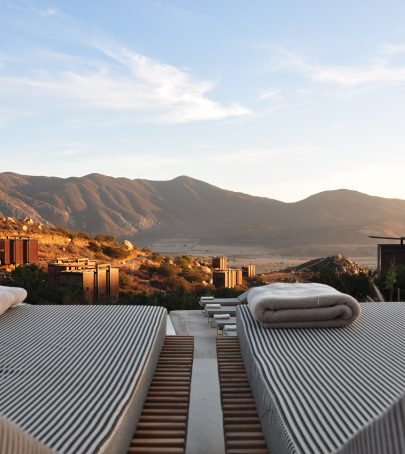
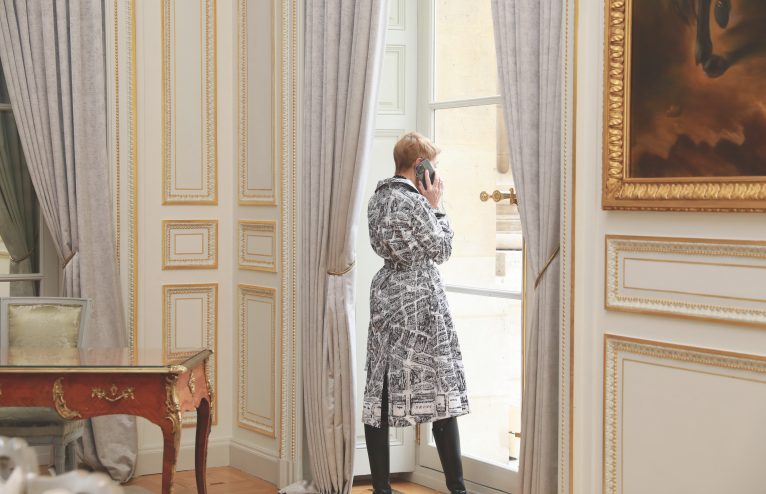
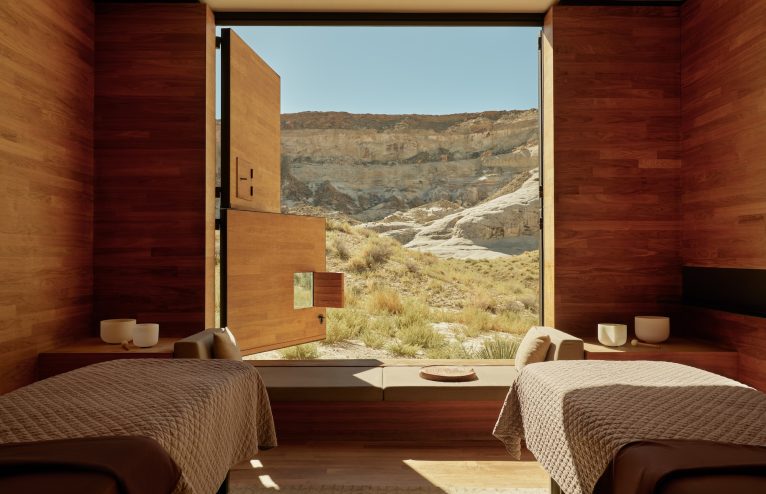





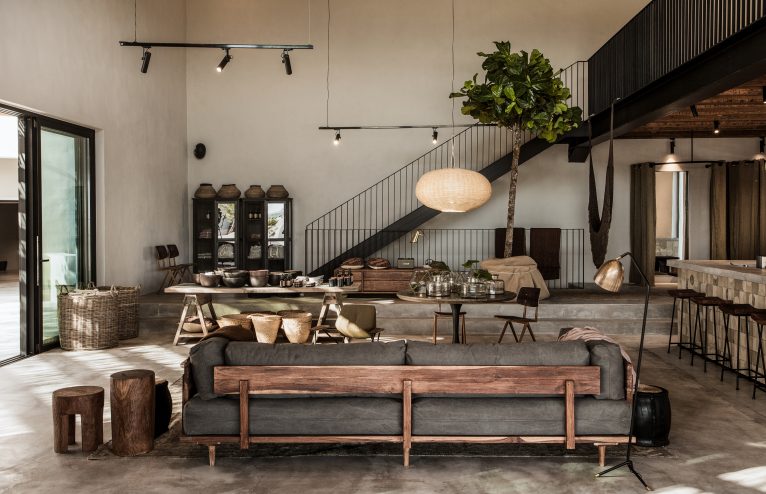
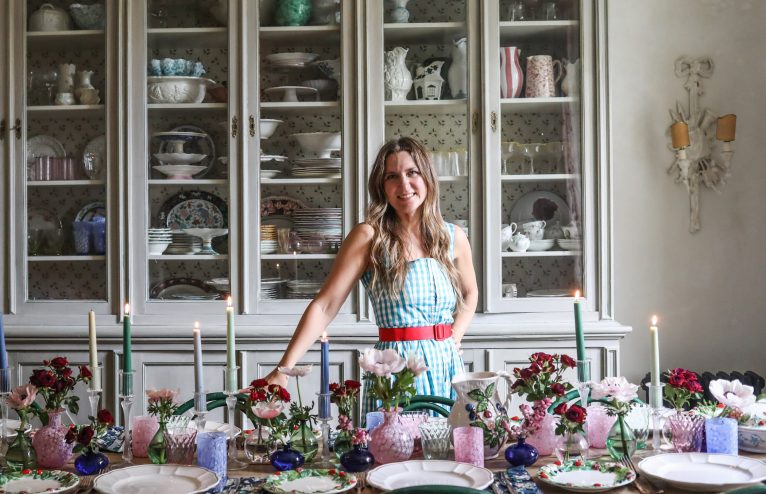
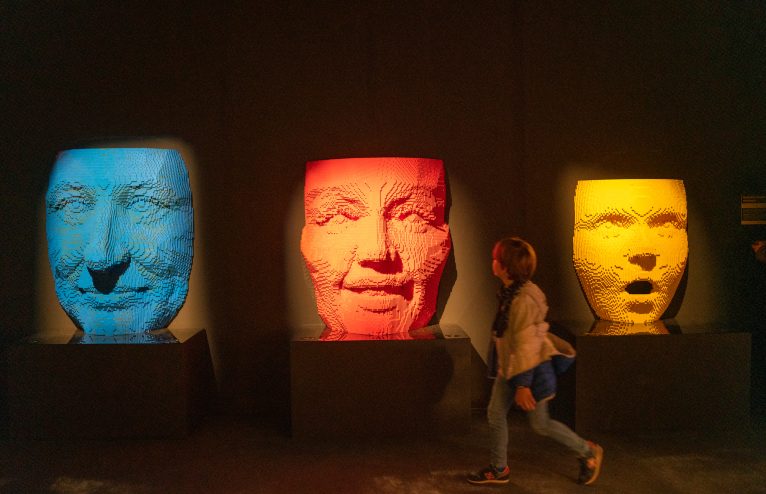

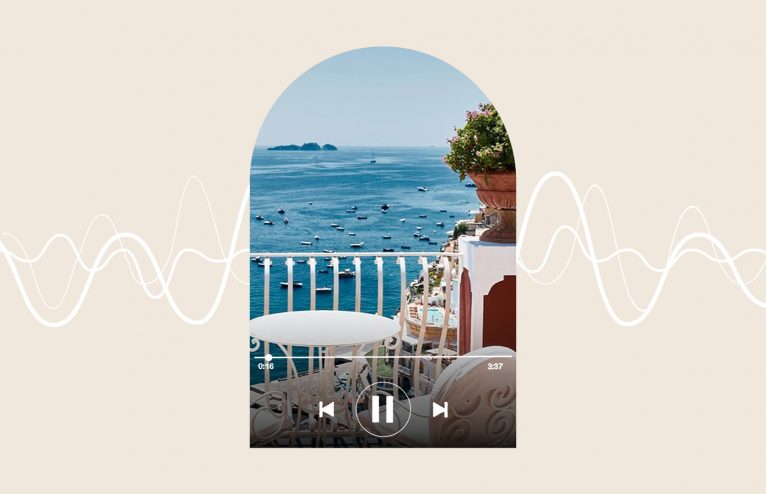
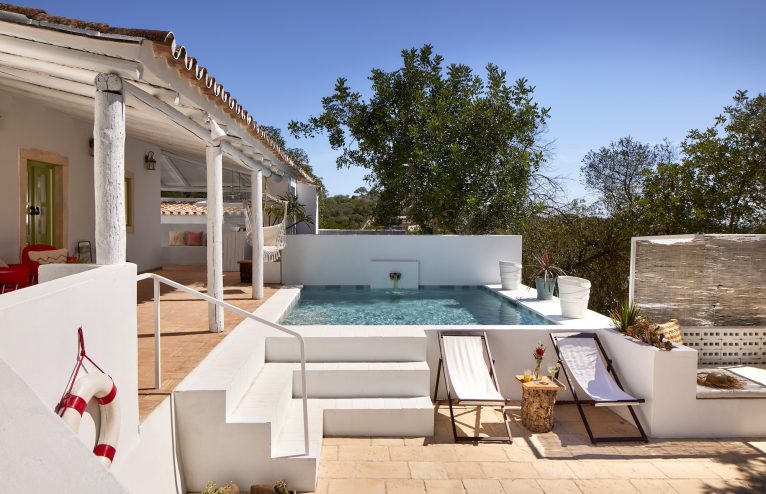
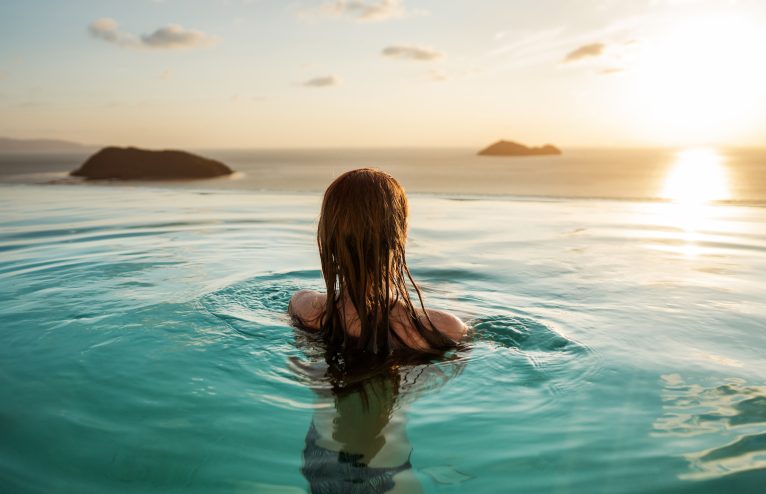

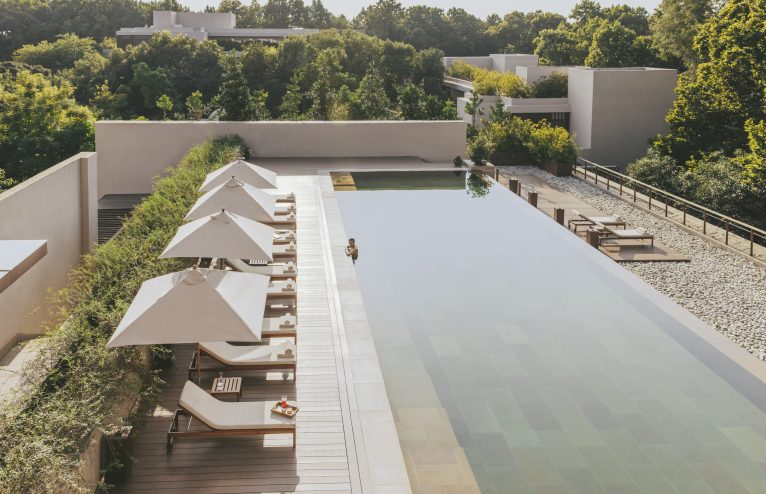
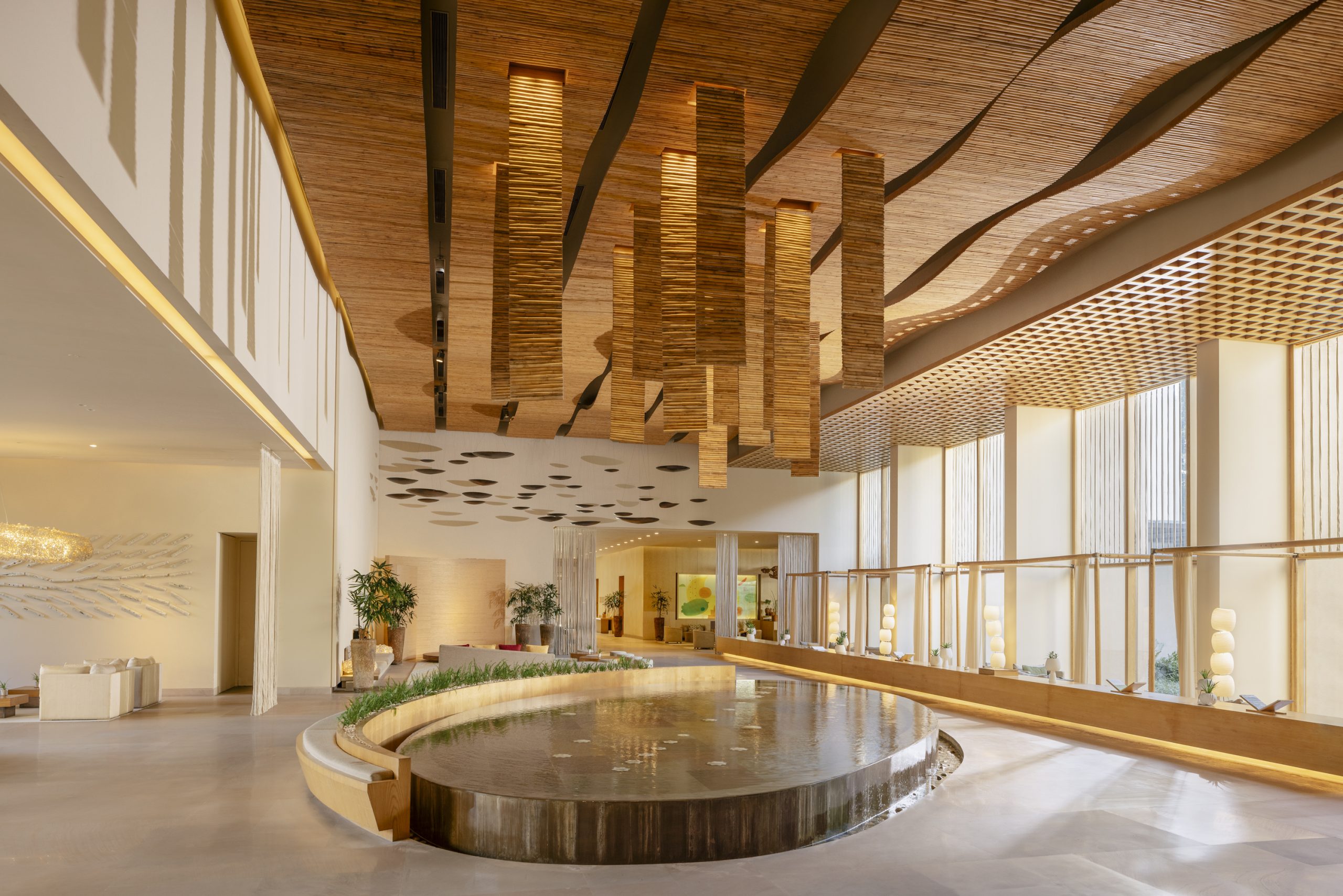
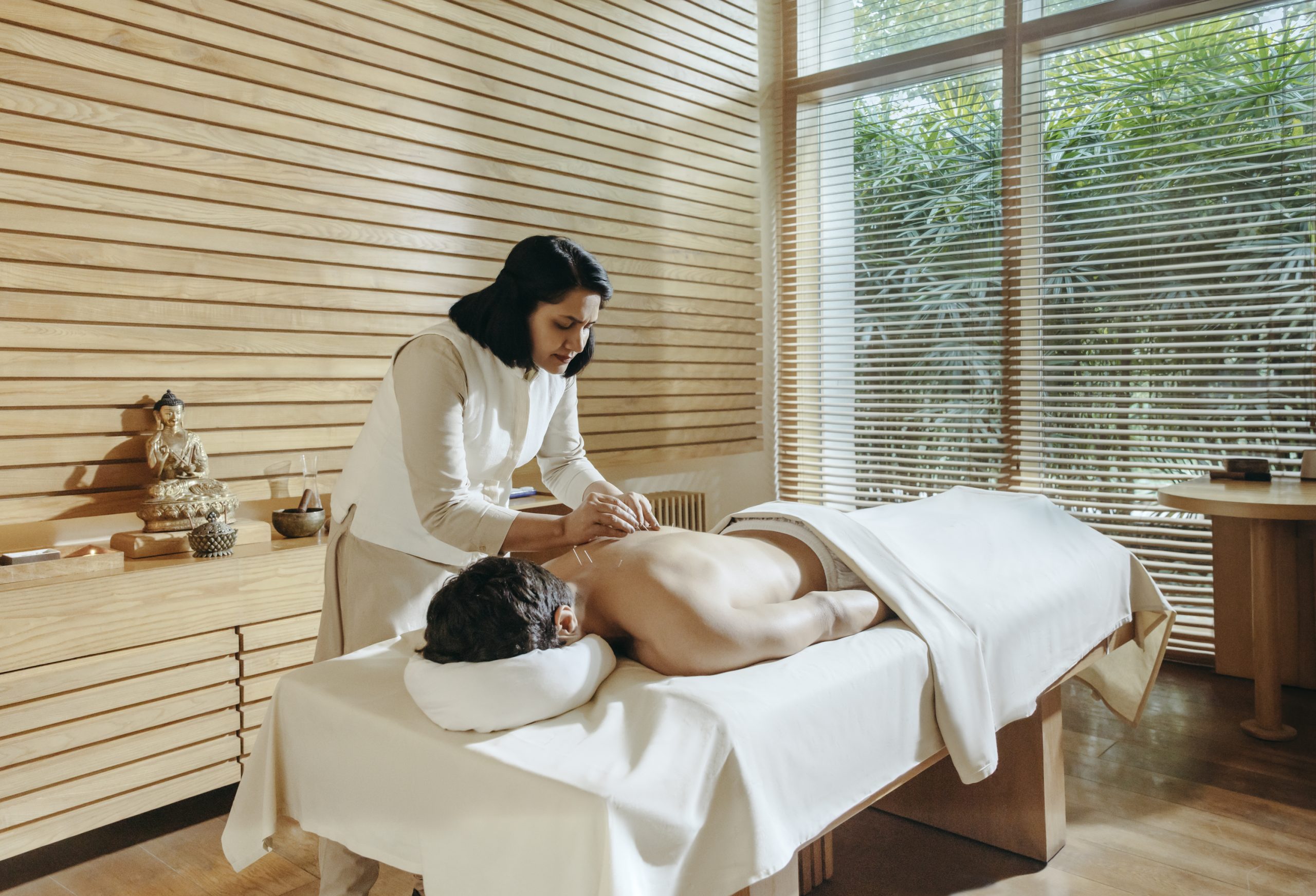
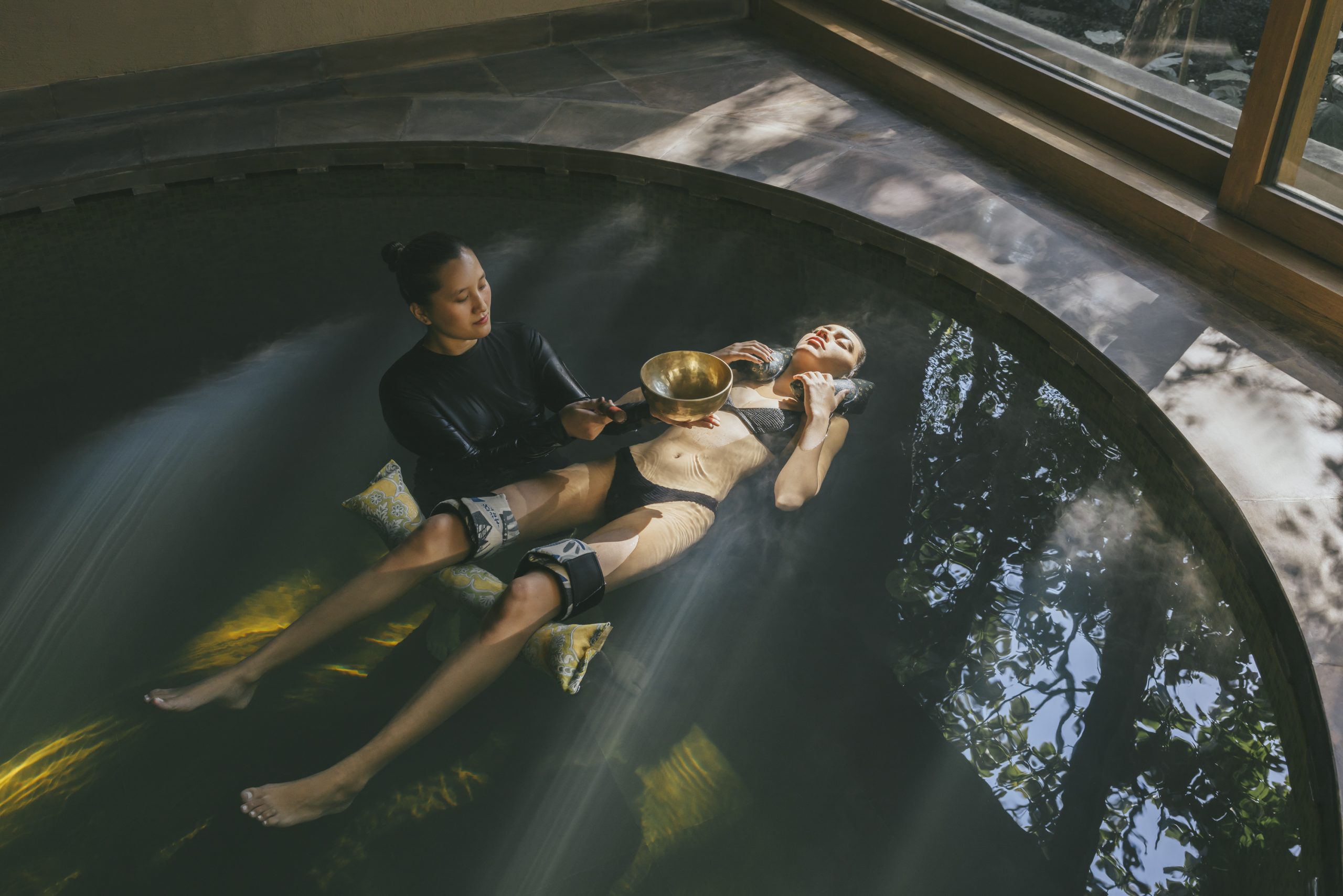
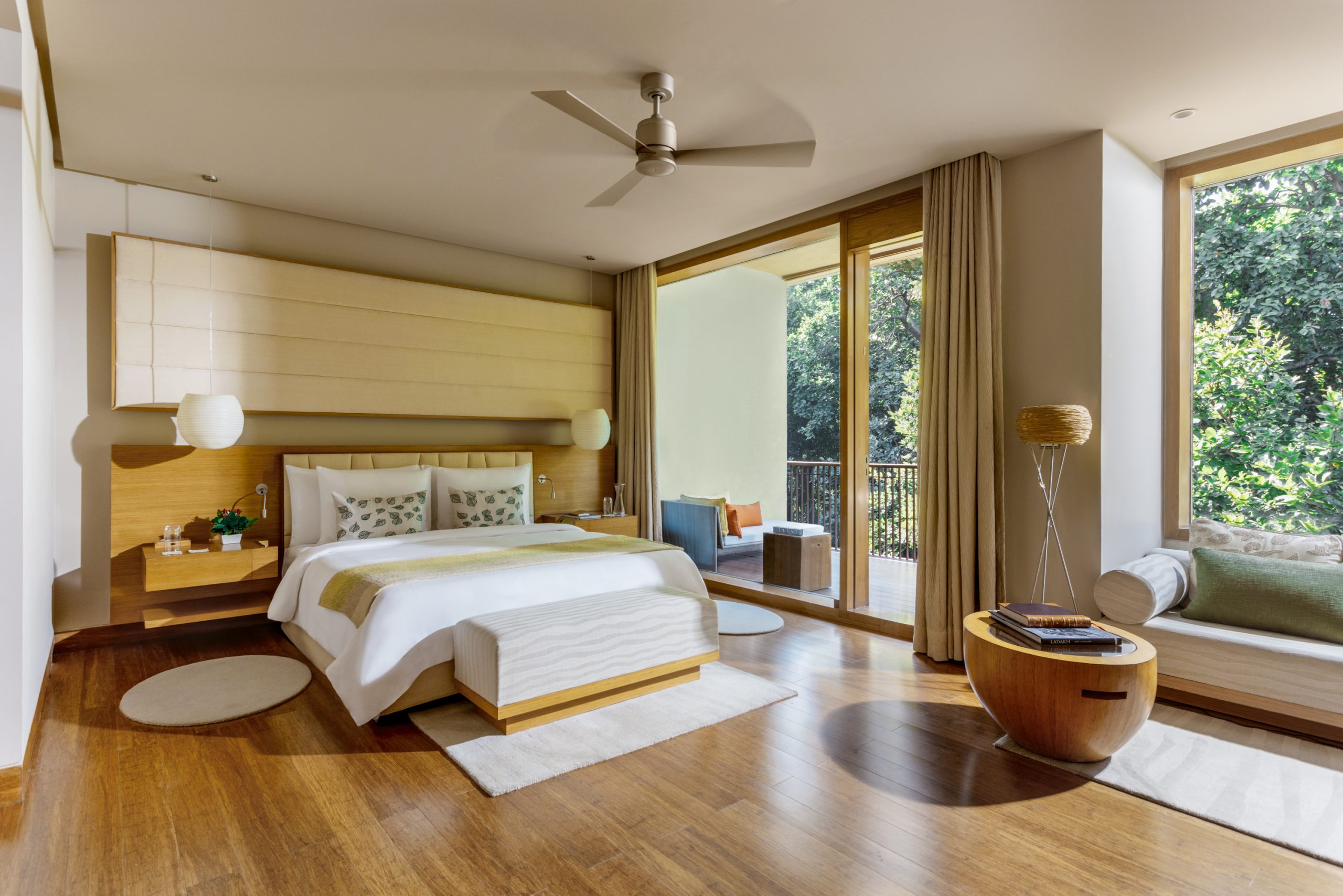
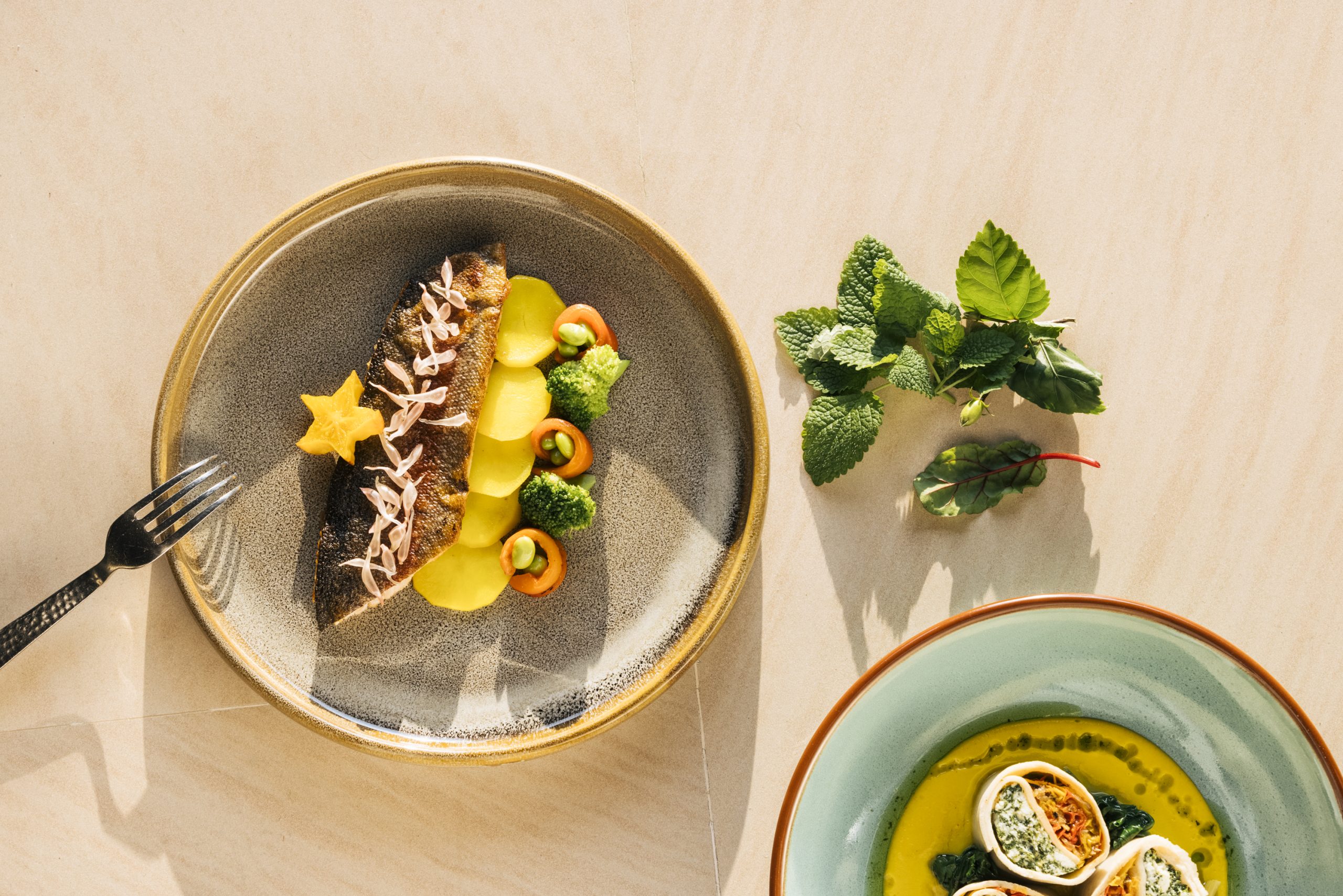
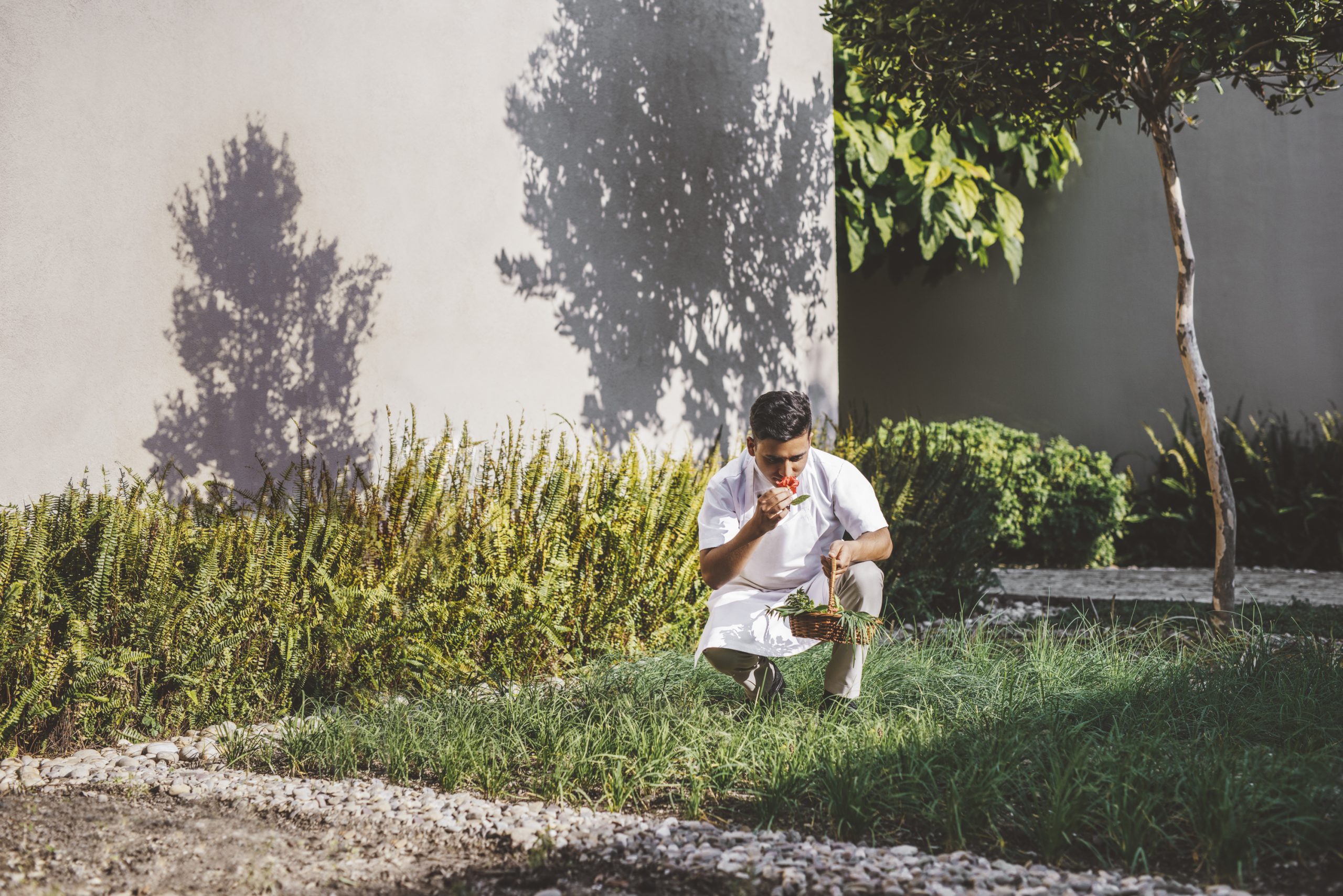
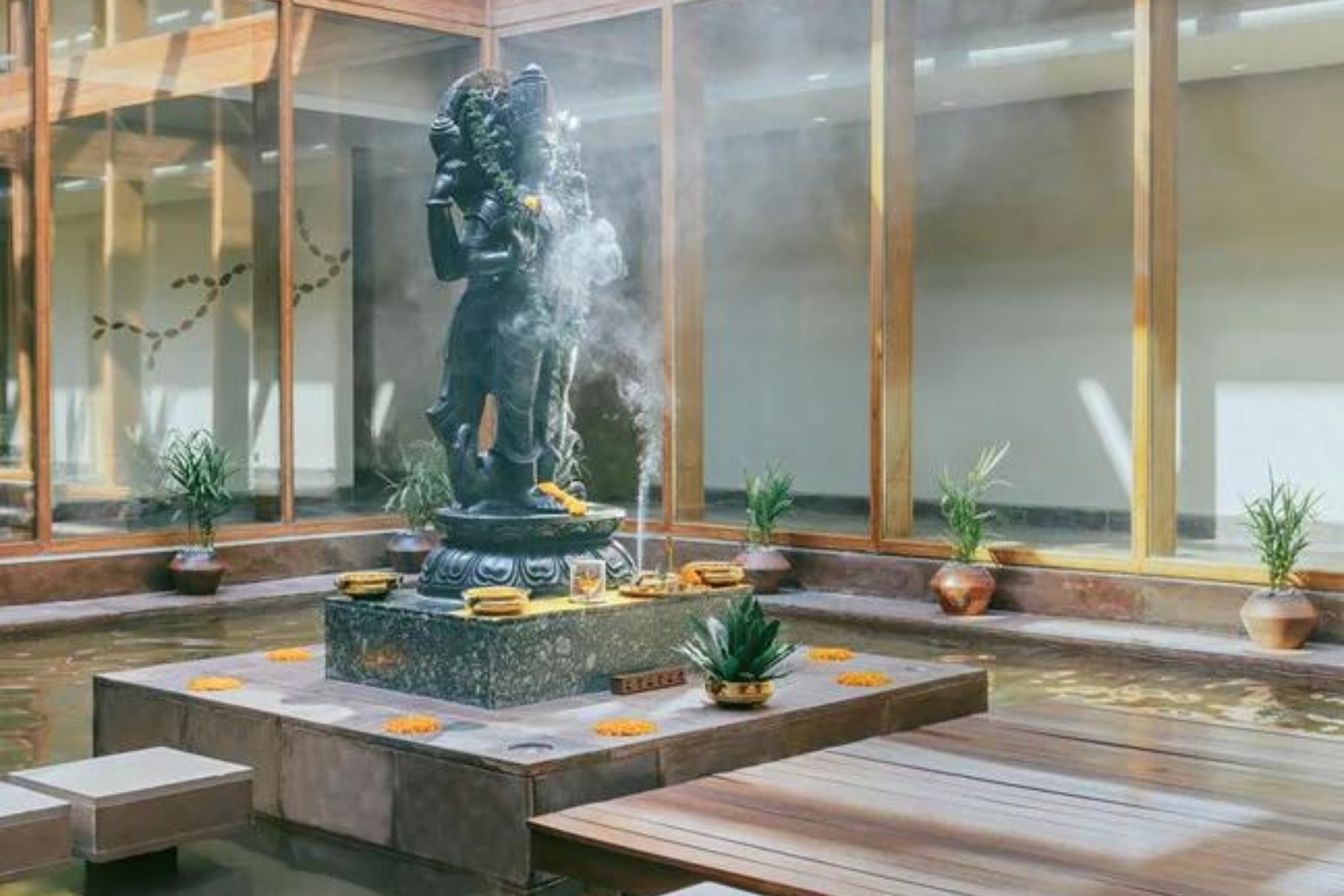


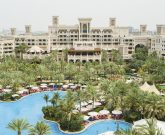
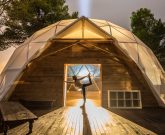
Any Questions or Tips to add?